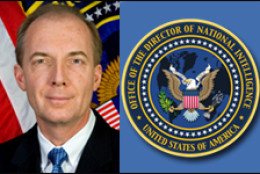Office of the Director of National Intelligence
-
The Office of the Director of National Intelligence said the lead agencies under the IC IT Enterprise program launched a standard desktop, a secure community cloud and an apps store in mid-August. Al Tarasiuk, the assistant DNI and intelligence community chief information officer, said the key to this effort was having an ICwide agreed-upon security architecture and policies.
September 10, 2013 -
News and buzz in the acquisition and IT communities that you may have missed this week.
August 02, 2013 -
Each year, the Presidential Distinguished Rank Awards honor members of the Senior Executive Service for their accomplishments. But this year, one very important group of federal employees was left out. Carol Bonosaro, president of the Senior Executives Association, said she's frustrated that this year's event included no winners from the intelligence community because the White House has yet to approve their nominations. An ODNI official said intelligence community winners will be announced soon.
April 26, 2013 -
James Clapper, the director of National Intelligence, said the 17-agency community is trying not to repeat lessons of past cuts that hampered analytical capabilities. Clapper also issued a new IC-wide code of ethics and made a key change to the security clearance form.
April 10, 2013 -
James Clapper, the director of National Intelligence, tells Federal News Radio he's concerned about the effects of sequestration on the intelligence community.
February 15, 2013 -
Al Tarasiuk, the chief information officer for ODNI and for the intelligence community, said the IC-IT Enterprise strategy is centralizing technology services across the 17 agencies. October 11, 2012(Encore presentation November 22, 2012)
October 11, 2012 -
Intelligence Community Information Technology Enterprise will reach initial operating capability next March on the way to full implementation in 2018. The NGA and DIA are building a common desktop for all of the intelligence community agencies.
October 10, 2012 -
The Information Sharing Environment is supporting a set of technology priories to promote the safe disclosure of data. In the ISE's annual report to Congress, it highlights the steps agencies have taken over the past year to move toward a culture of responsible and secure information sharing.
September 28, 2012 -
The developing field of using social media to gather information can provide benefits to the intelligence community, but it also involves challenges. The changing environment of open source intelligence requires agencies and companies plan their approaches carefully.
August 01, 2012 -
The initiative aims to provide federal employees with college credit for certain agency-created human resources classes. Federal employees could apply the courses toward degrees at colleges and universities.
July 17, 2012 -
Agency officials from the Defense Department and the Office of Personnel Management, along with a handful of other agencies, cited significant improvements in both timeliness and accuracy in the security-clearance program at a Senate subcommittee. The agencies agreed, however, much work remained to maintain that progress and to take on new challenges, such as reciprocity and reinvestigation.
June 21, 2012 -
The government is working with a cobbled-together set of authorities and responsibilities when it comes to protecting networks from cyber threats, a top Homeland Security Department cyber official said Wednesday. Congress needs to act soon to update the nation's cybersecurity posture, he said.
May 03, 2012 -
The Insider Threat Task Force expects to submit its national plan to the White House in the next few months. The Defense Department will use its secure identity cards to stop unauthorized access to data and systems.
April 05, 2012 -
Chief information officers in the intelligence community said despite cultural challenges, it makes sense to treat the IC as one IT enterprise. They owe an implementation plan to IC agency heads by the end of this year.
October 21, 2011 -
After a decade of uninterrupted spending growth, the Office of the Director of National Intelligence has submitted budget cutting plans for intelligence agencies to the White House. The intelligence community will try to save money mostly through IT efficiencies, and will try to protect its civilian workforce while drawing down on its reliance upon contractors.
October 18, 2011



